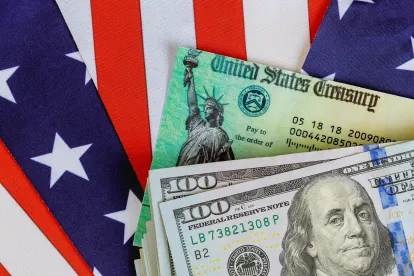New IRS guidance takes the position that taxpayers may not deduct payroll, mortgage interest, rent or utility expenses that were paid with PPP loan proceeds. The guidance also confirms that forgiven PPP loans will not be included in a taxpayer’s gross income.
IN DEPTH
On April 30, 2020, the IRS released Notice 2020-32 (Notice), stating that no deduction is allowed for an expense that is otherwise deductible if the payment of the expense results in forgiveness of a Paycheck Protection Program loan (PPP loan) under section 1106(b) of the Coronavirus Aid, Relief, and Economic Security Act (the CARES Act). Section 1106(b) provides that PPP loan forgiveness applies to payments of payroll, certain mortgage interest and rent, and utility costs incurred during an eight-week period beginning on the date of the origination of the loan – all of which are expenses that taxpayers may otherwise deduct. The Notice also confirms that income associated with such forgiveness is excluded from taxpayers’ gross income.
Support for the IRS’ non-deductibility position is not readily apparent in the text of the CARES Act itself, and as such may come as a surprise to taxpayers. Section 1106(i) of the CARES Act provides that any amount that (but for that subsection) would be includible in a taxpayer’s gross income due to the loan forgiveness described in section 1106(b) “shall be excluded from gross income.” In the Notice, the IRS interpreted this language to indicate that “any category of gross income that may arise” from a forgiven PPP loan – regardless of whether such income would be properly characterized as discharge of indebtedness income or would be otherwise includible in gross income – shall be excluded from the gross income of a PPP loan recipient.
However, the IRS noted that the CARES Act does not speak to whether certain deductions for eligible PPP loan expenses are allowed where the PPP loan is subsequently forgiven.
The IRS addressed this issue for the first time in the Notice, taking the position that expenses paid to qualify for loan forgiveness under a PPP loan are allocable to tax-exempt income and thereby non-deductible under section 265 of the Internal Revenue Code.
Generally, section 265 prevents taxpayers from “double dipping” by taking a deduction for expenses incurred to generate tax-exempt income, specifically providing that taxpayers may not deduct amounts that are allocable to a “class of exempt income.” Applying this rule in the present context, the IRS concluded that to the extent PPP loan amounts forgiven under the CARES Act are excluded from a taxpayer’s gross income, such amounts shall result in a class of exempt income for purposes of section 265. As a result, recipients of PPP loans may not deduct amounts allocable to such income.
Which expenses are allocable to tax-exempt income? The Notice deems deductions to be allocable to tax-exempt income (and thus disallowed under section 265) if the deductions were “for the amount of any payment of an eligible section 1106 expense to the extent of the resulting covered loan forgiveness (up to the aggregate amount forgiven).”
The IRS takes the view that this conclusion is consistent with prior guidance. The Notice posits that section 265 applies where taxpayers receive tax-exempt income for a specific purpose – here, to fund payroll and other eligible costs – and incur deductions to carry out that purpose (e.g., to pay payroll costs). If so, the IRS states that “it is proper to conclude that some or all of [such] deductions are allocable to the tax-exempt income.” The Notice cites an earlier IRS ruling (Rev. Rul. 83-3) for the proposition that deductions are allocable to tax-exempt income where such income is earmarked for a specific purpose and deductions are incurred to carry out that purpose. The IRS argues that the “direct link” between the amount of PPP loan forgiveness and “an equivalent amount” of otherwise deductible payments made pursuant to section 1106 expenses constitutes “a sufficient connection” to warrant the application of section 265 to disallow deductions for such payments to the extent of the amount of the forgiven PPP loan.
The IRS’s decision has received mixed reviews and prompted swift, bipartisan pushback from leading members of Congress. It is possible that future legislation may override the IRS’s position and restore the full deductibility of expenses paid with PPP loan proceeds. In the meantime, taxpayers need to be aware that the IRS is seeking to claw back some of the key benefits of the CARES Act.





 />i
/>i

